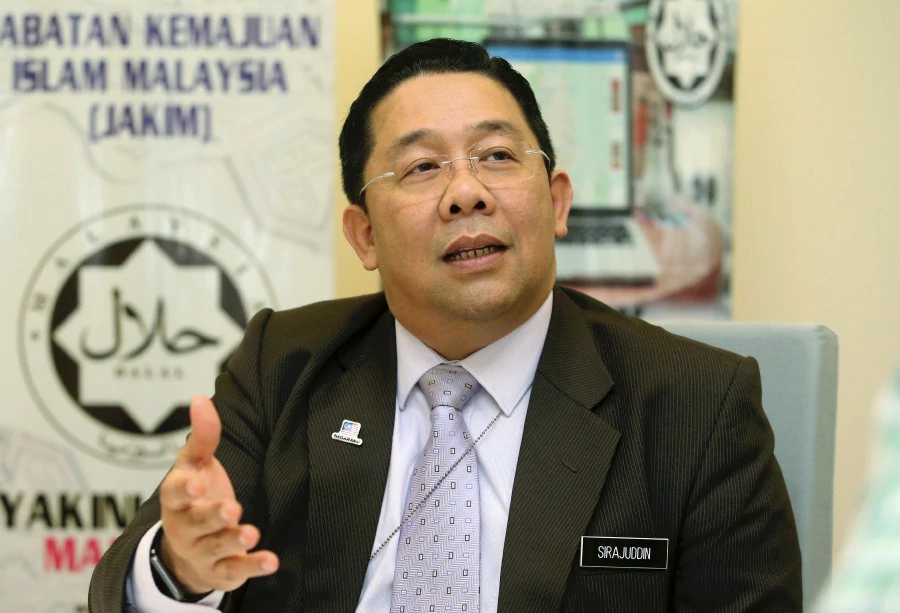Malaysia’s JAKIM launches global association to promote halal harmony
FILE PHOTO: JAKIM Halal Hub director Datuk Dr Sirajuddin Suhaimee. Photo by New Straits Times
KUALA LUMPUR - Malaysia today announced the establishment of a new international association of halal organisations that aims to bring greater collaboration to halal certification.
The International Halal Authority Board (IHAB), whose secretariat will be based in Malaysia, was devised by the Department of Islamic Development Malaysia (JAKIM) to fulfil five key tasks.
“IHAB will serve as a platform for harmonisation among global halal authorities and certification bodies,” said JAKIM’s Halal Hub director Dr Sirajuddin bin Suhaimee speaking at IHAB’s inaugural general assembly in Putrajaya, just outside of Kuala Lumpur.
As well as working towards harmonisation, the association will promote halal certification between members under mutual recognition arrangements. It will also encourage global cooperation among members, provide training for certification bodies to increase their development, and help boost market access.
|
READ ALSO INTERVIEW-Malaysia ready to lend expertise to harmonise halal accreditation globally - JAKIM |
All Muslim-owned certification bodies recognised by Organisation of Islamic Cooperation (OIC) nations will be invited to join IHAB, as will OIC government agencies and halal authorities.
In an inclusive membership model, agencies and authorities from non-Muslim countries can also gain associate member status, though they will not be entitled to vote on resolutions.
“IHAB is a platform for harmonisation for all authorities, especially for OIC countries and certification bodies all over the world,” said Suhaimee, adding that the association was needed because “Muslims are not united [in their approach to certification]”.
JAKIM director-general Othman Mustafa said the halal industry must now work to unify a vast number of certification systems and procedures to knock down trade barriers. Currently JAKIM alone recognises 69 different certification bodies across 42 countries.
“By blending both OIC and non-OIC countries IHAB will have a positive impact on halal authorities in the future. We hope these objectives will be achievable,” Mustafa said.
Malaysia deputy prime minister Ahmad Zahid Hamidi first announced the setting up of IHAB in June last year, saying that it was part of the Malaysian Halal Council’s 2018-2020 agenda.
|
READ ALSO IHAF addressing the need for unifying halal accreditation - Mohamed Saleh Badri |
IHAB-IHAF CONFLICT?
Launching just two years after the Dubai-based International Halal Accreditation Forum (IHAF) was established with a similar mission, Suhaimee stressed that IHAB was not going toe-to-toe with the IHAF.
“We are not creating a new competitor,” he said. "We complement each other, making us stronger so we can use our power to push the industry to follow the needs of Muslims—not [certification authorities] following the needs of the industry.”
He stressed that IHAB’s function was to provide a platform for harmonisation among global halal authorities and certification bodies, whereas IHAF focused on accreditation.
Suhaimee also revealed that both organisations have been in discussions over ways they can collaborate in the future without stepping on each other’s turf. He hinted that they had made progress, saying: “There is going to be good news, but I don’t want to announce it today.”
Farah Ali Al Zarooni, IHAF’s advisor, presented a united front. “Today, let’s think about the collaboration and the cooperation between the different organisations in halal.”
INDUSTRY SUPPORT
A resolution to back IHAB’s formation was met with cheers and applause by delegates at the inaugural assembly, most of whom represented JAKIM-approved certification bodies.
“It’s a very good start,” Dr Muhammad Munir Chaudry, president and chief executive of the Chicago-based Islamic Food and Nutrition Council of America (IFANCA), told Salaam Gateway. “I’ve been waiting for something like this for 40 years.”
Alep Mydie, of the Islamic Association of Katanning in Western Australia, agrees.
“It clears the way for halal organisations like us to go about our business and do our work for our community, rather than having to worry about access and barriers. It is important that JAKIM is behind this,” said Mydie.
“You wouldn’t get something like this formed anywhere else—Malaysia has the infrastructure to make it happen. It opens doors for people like us who operate in small halal outposts like Australia.”
(Reporting by Richard Whitehead; Editing by Emmy Abdul Alim emmy.alim@thomsonreuters.com)
Our Standards: The Thomson Reuters Trust Principles
© SalaamGateway.com 2018 All Rights Reserved
